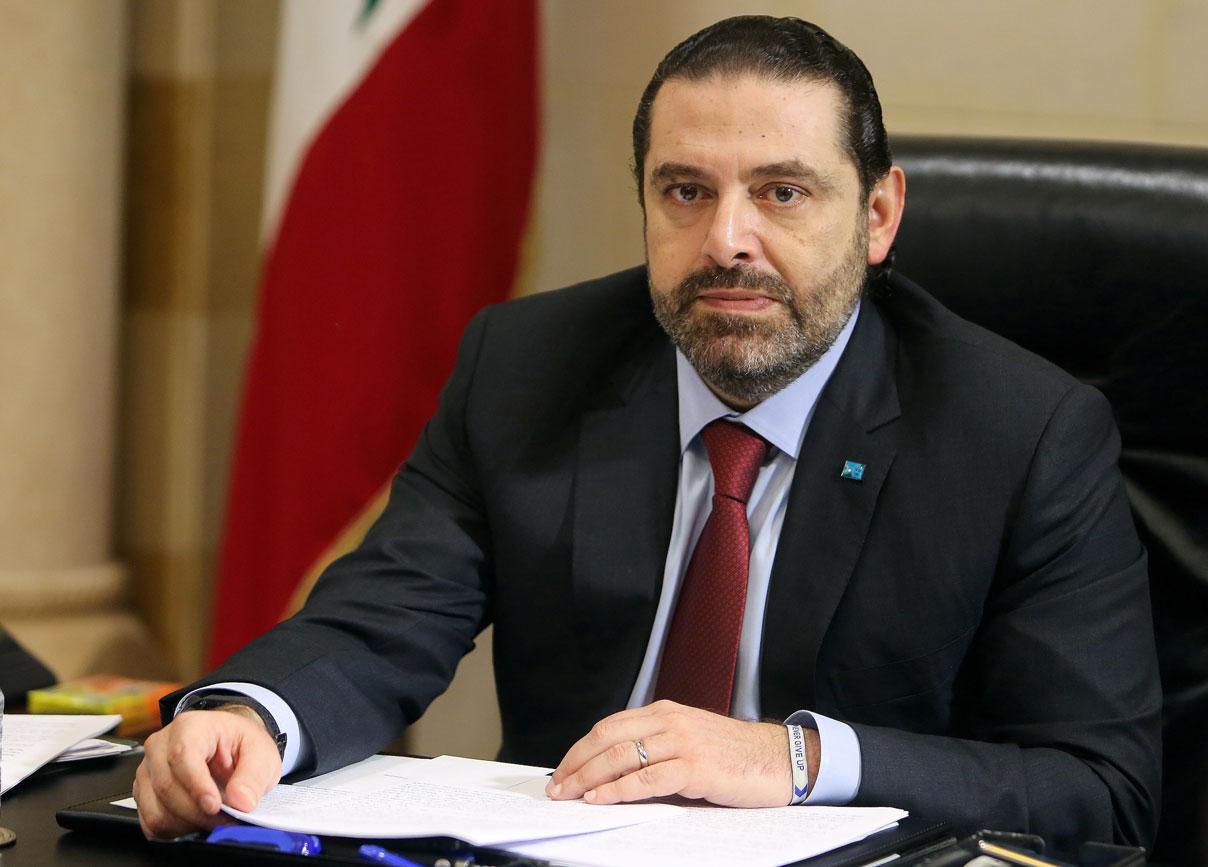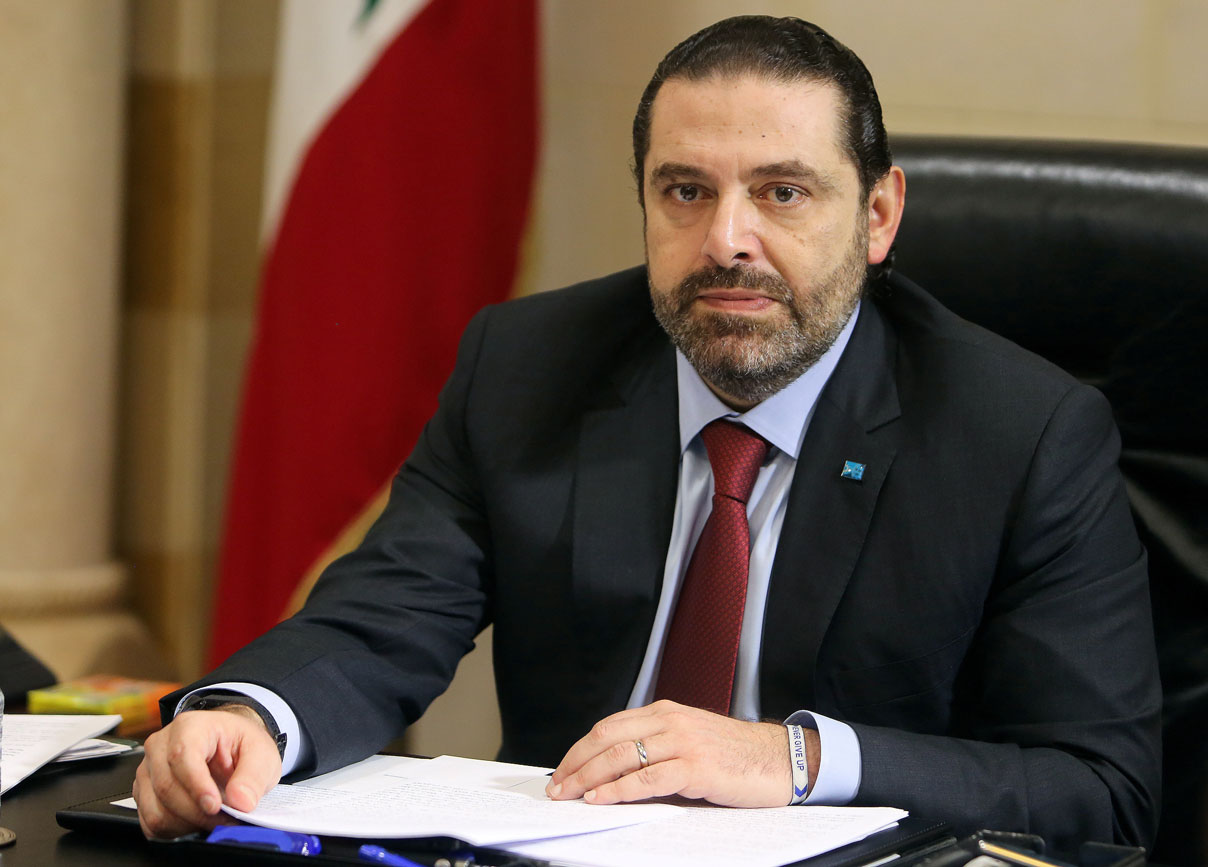Hariri gives in to anti-government protests
BEIRUT - Lebanese Prime Minister Saad al-Hariri said he would submit his resignation on Tuesday, declaring he had hit a "dead end" in trying to resolve a crisis unleashed by huge protests against Lebanon's ruling elite.
Hariri's express and sombre announcement was met by cheers from crowds of protesters who have remained mobilised since October 17, crippling the country to press their demands.
Lebanon has remained paralysed by the unprecedented wave of anger against the rampant corruption of the political class that has collectively led Lebanon into the worst economic crisis since the 1975-90 civil war.
Hariri's move came after days of apparently unfruitful efforts to reshuffle posts among his uneasy coalition partners and also as tension mounted on the ground between protesters and security forces bent on re-opening the country for business.
The Sunni politician addressed the nation in a televised address after a mob loyal to Shiite Muslim groups Hezbollah and Amal attacked and destroyed a protest camp set up by the anti-government demonstrators in Beirut.
"For 13 days the Lebanese people have waited for a decision for a political solution that stops the deterioration (of the economy). And I have tried, during this period, to find a way out, through which to listen to the voice of the people," Hariri said in his speech.
"It is time for us to have a big shock to face the crisis. I am going to the Baabda (presidential) palace to present the resignation of the government. To all partners in political life, our responsibility today is how we protect Lebanon and revive its economy."
'Political orders'
Earlier on Tuesday, in central Beirut, black-clad men wielding sticks and pipes wrecked the protest camp that has been the focal point of countrywide rallies against the long entrenched elite.
Dozens of rioters descended on the rally site near the government headquarters, where they attacked protesters, torched tents, and tore down banners calling for "revolution".
They dismantled podiums and broke speakers as streams of people flooded out in panic.
Smoke rose as some of the protester tents were set ablaze by Hezbollah and Amal supporters, who earlier fanned out in the downtown area of the capital shouting "Shia, Shia" in reference to themselves and cursing anti-government demonstrators.
The counter-protesters chanted slogans hailing the leaders of two Shiite movements - Hezbollah chief Hassan Nasrallah and Amal head Nabih Berri - as they pushed roadblocks aside and provoked protesters.
"With our blood and lives we offer ourselves as a sacrifice for you Nabih," they chanted. "We heed your call, we heed your call, Nasrallah."
Security forces did not initially intervene to stop the assault, in which protesters were hit with sticks and were seen appealing for help as they ran, witnesses said. Tear gas was eventually fired to disperse the crowds.
Demonstrators caught in the attack tried to jump over the rails of the highway while others ducked behind concrete blocks.
For nearly two weeks, the main protest square had been home to impromptu concerts in the evenings, with hundreds dancing deep into the night to music blasting from speakers.
After Tuesday's attack, streets were strewn with litter, as people tried to salvage what they could from the torched remains of their tents.
"There are political orders to attack. This was not spontaneous," said one demonstrator alluding to Amal and Hezbollah, neither of which were spared by protesters, including from their own base.
The show of force in Beirut came after Hezbollah leader Sayyed Hassan Nasrallah said last week roads closed by protesters should be reopened and suggested the demonstrators were financed by its foreign enemies and implementing their agenda.
It is the most serious strife on the streets of Beirut since 2008, when Hezbollah fighters seized control of the capital in a brief eruption of armed conflict with Lebanese adversaries loyal to Hariri.
Protesters have insisted on a complete overhaul of the country's sectarian-based governance and celebrated the emergence of a national civic identity. Tens of thousands of people joined hands across the country on Sunday, from Tripoli in the north, to Tyre in the south, to symbolise a newfound national unity.
The Iran-backed Hezbollah is the only movement not to have disarmed after Lebanon's 15-year civil war.
Economic pressure
The turmoil has worsened Lebanon's acute economic crisis, with financial strains leading to a scarcity of hard currency and a weakening of the pegged Lebanese pound. Lebanese government bonds tumbled on the turmoil.
The turmoil has paralysed Lebanon at a time of worsening financial crisis - banks were closed for a 10th day on Tuesday along with schools and businesses.
Hariri's resignation would defy the powerful Hezbollah - Nasrallah has twice said that he was against such a step, citing the risk of a dangerous void.
According to the constitution, Hariri's cabinet would stay on in a caretaker capacity until a new government is formed.
Hariri last week sought to defuse popular discontent through a batch of reform measures agreed with other groups in his coalition government, including Hezbollah, to - among other things - tackle corruption and long-delayed economic reforms.
But with no immediate steps towards enacting these steps, they did not placate the demonstrators, whose demands include the resignation of his coalition government.
Although Hariri's coalition partners have supported the move, protesters continued to accuse the political elite of desperately attempting to save their jobs and have stuck to their demands for deep, systemic change and an overhaul of the country's sectarian power-sharing system.
Lebanon's political leaders have appeared shell-shocked, trying simultaneously to express sympathy for the largely peaceful protest movement while warning of turmoil in the case of a power vacuum.
But a senior official from outside Hariri's Future Party had told Reuters news agency earlier on Tuesday the premier would "most probably" announce a government resignation. The report weighed on Lebanese dollar bonds.
Central bank governor Riad Salameh called on Monday for a solution to the crisis in just days to restore confidence and avoid a future economic meltdown.
A black market for US dollars has emerged in the last month or so. Three foreign currency dealers said a dollar cost 1,800 pounds on Tuesday, weakening from levels of 1,700 and 1,740 cited on Monday.
The official pegged rate is 1,507.5 pounds to the dollar. Salameh said on Monday the central bank would maintain the pegged rate when banks reopen.
"Even if the protesters leave the streets the real problem facing them is what they are going to do with the devaluation of the pound," said Toufic Gaspard, an economist who has worked as an adviser to the IMF and to the Lebanese finance minister.
"A very large majority of the Lebanese income is in the Lebanese pound, their savings are in the Lebanese pound and their pension is in Lebanese, and it is certain it has already started to devalue," he said.



